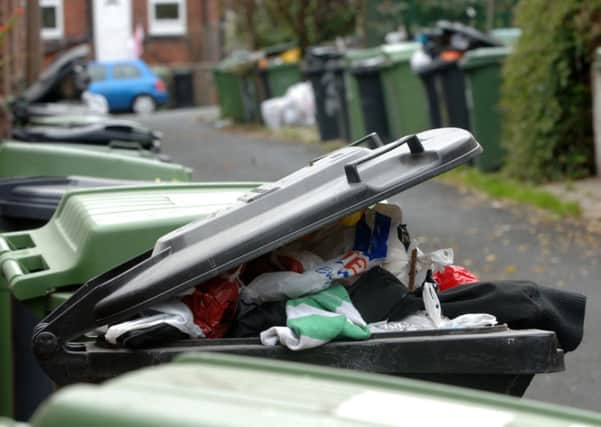MPs blast £12.5bn of food going to waste in landfill


The scale of the problem of food waste has prompted growing concerns among both politicians and ecologists as millions of tonnes are thrown away unnecessarily every year.
Latest figures show that seven million tonnes of food and drink costing £12.5bn are thrown away in the nation’s households every year – the majority of it still fit to eat or drink.
Advertisement
Hide AdAdvertisement
Hide AdCollections of leftover food have, however, increased and official guidance can help local authorities looking into such schemes, but the Government said there are no plans to compel councils to adopt them in a response to a report by MPs on reducing waste.
However, the parliamentary Environmental Audit Committee (EAC) said the Government had “its head in the sand”, and was refusing to take steps to reduce the amount of food and resources that were wasted in the country.
The committee’s report published earlier this year on “ending the throwaway society” called for measures including separate food waste collections and a ban on food being sent to landfill.
The MPs said more than a third of food waste goes to landfill, where it produces potent greenhouse gas methane, but leftover food could be used in “anaerobic digestion”, a process which produces green energy and fertiliser for parks and agriculture.
Advertisement
Hide AdAdvertisement
Hide AdIt also called for lower VAT on recycled products and for a phased-in requirement for new products to be recyclable.
In its response, the Government said VAT was controlled by the European Union and that it had no plans to require that all products coming on to the market had to be recyclable.
But the Government said it was working with industry to investigate options for extended warranty periods on electrical and electronic products and the contribution more resource-efficient businesses models could make.
EAC chairwoman Joan Walley said: “The disposable society simply isn’t sustainable in the 21st century.
Advertisement
Hide AdAdvertisement
Hide Ad“Innovative companies in the UK, like B&Q and M&S, recognise this and are already demonstrating that using resources less wastefully is the future of business. Yet our Government seems to have its head in the sand and is refusing to take basic steps to reduce the amount of food and resources we waste.”
A spokeswoman for the Department for Environment, Food and Rural Affairs maintained the Government is “committed to ensuring we use our resources more carefully” and the UK is now producing less waste than ever before.
She added: “We all have a responsibility to tackle waste – the Government continues to support this by providing a robust legal framework and guidance on how to cut waste which has helped consumers save £1.5bn-worth of food since 2007.”